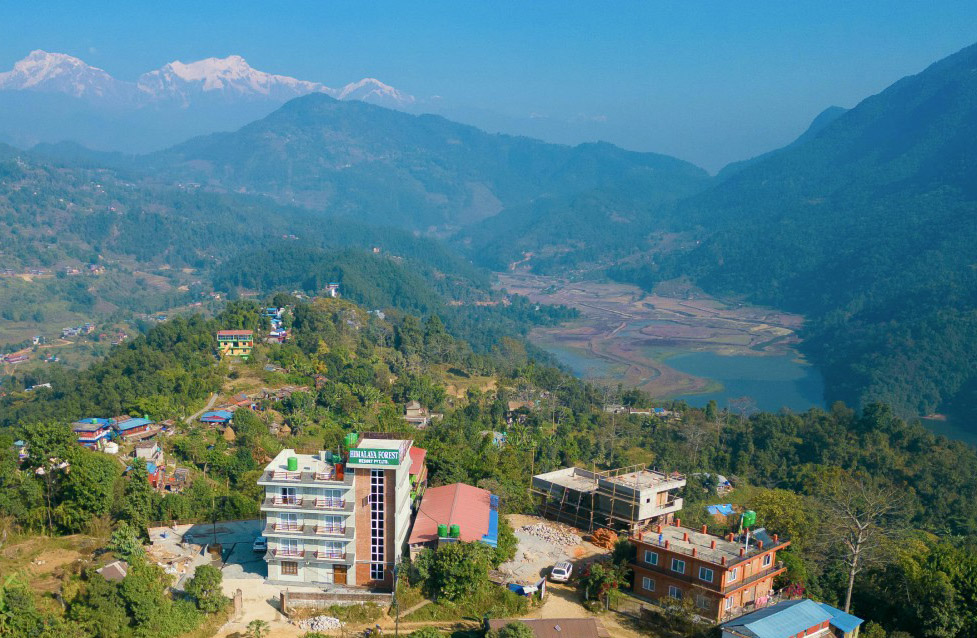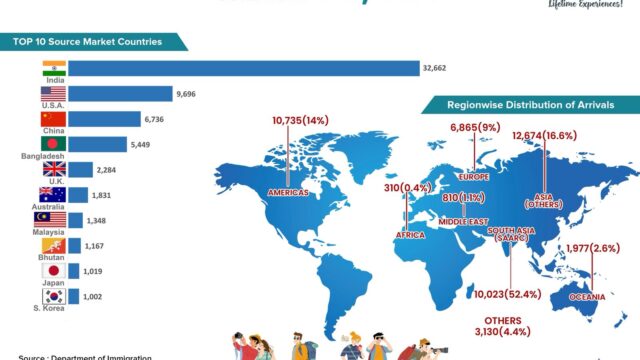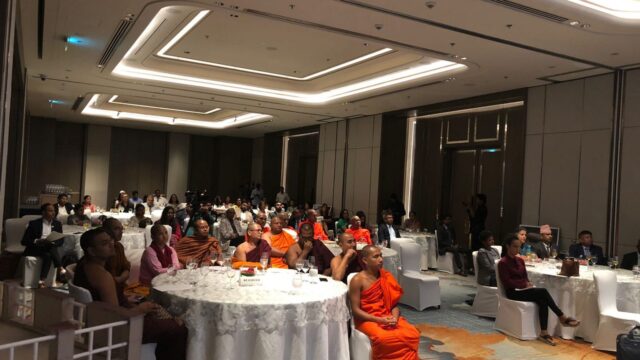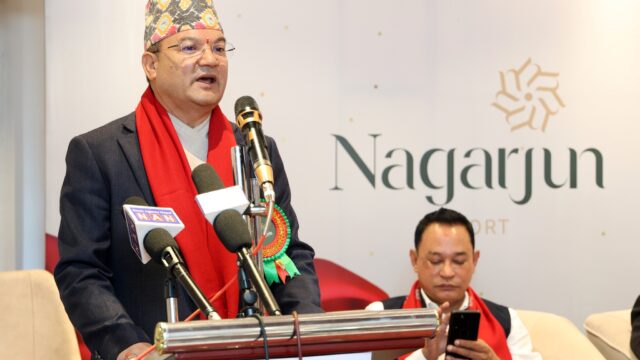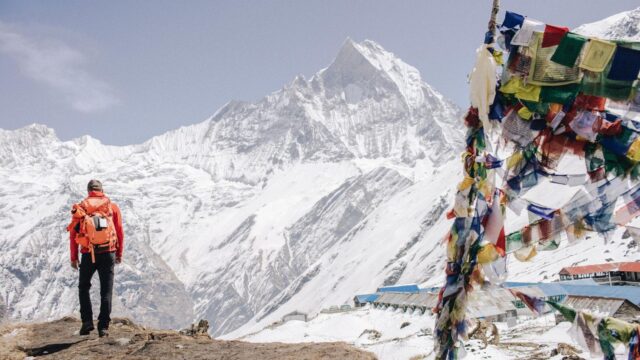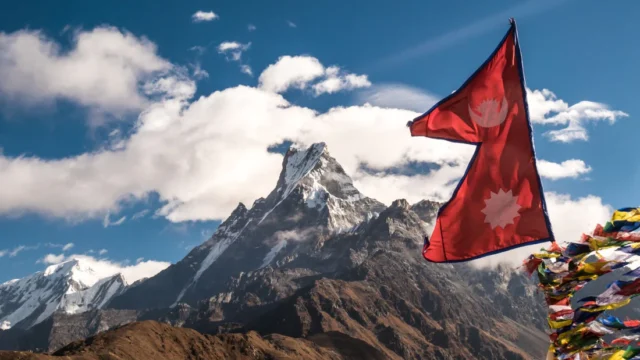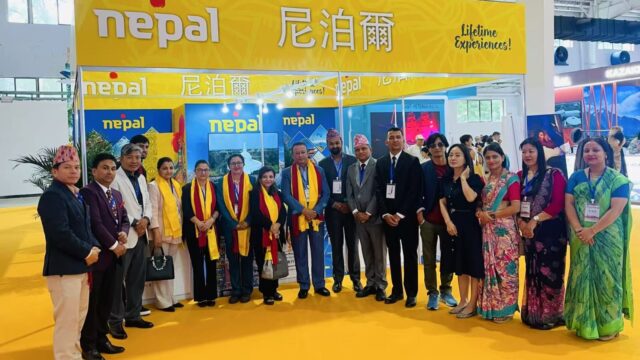With the goal of providing a peaceful escape for nature-loving tourists, “Himalaya Forest Resort” has been launched in Pachabhaiya, Pokhara Metropolitan City–31. Developed with an investment of NPR 110 million, the resort has already created employment opportunities for 11 people, according to proprietor Pramod Bhandari. The resort, situated in a naturally rich and serene environment, is expected to attract both domestic and international visitors seeking solace from urban chaos.
Focused on Tourists Visiting Begnas and Rupa Lakes
According to Bhandari, the resort is specially designed to serve tourists visiting Begnas and Rupa Lakes, the second-largest and most popular freshwater lakes in Pokhara after Phewa Lake. These lakes are major destinations for internal and foreign travelers seeking tranquility and natural beauty. The resort comprises 21 well-furnished rooms that range in price from NPR 2,000 to NPR 5,500 per night, catering to a range of budgets. The on-site restaurant offers both local and international cuisine, enhancing the guest experience with culinary diversity.
“Our resort can accommodate up to 60 guests per day,” Bhandari stated. “We aim to provide an escape from the hustle and bustle of city life while ensuring modern comforts amid nature.” Despite not having held a formal inauguration yet, the resort has already been in operation for the past two months and has started to gain attention from visitors.
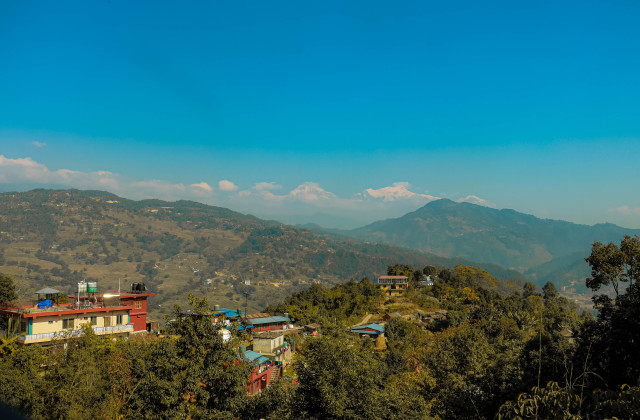
Ideal Location for Nature and Birdwatching Enthusiasts
Pachabhaiya is considered an ideal location for observing various natural resources including lakes, forests, and the Himalayan range. The area is also well-known for birdwatching, with several species inhabiting the nearby forests and wetlands. “Tourists come to Begnas to spend peaceful nights away from Pokhara’s crowded lifestyle,” said Bhandari. “Our goal is to offer warm hospitality services in a pristine natural setting.”
The decision to open a resort in Pachabhaiya was inspired by Bhandari’s personal attachment to the area. Having worked in the educational field and been engaged in business activities in Pokhara’s Baidam area for the last 18 years, Bhandari decided to invest in hospitality for the first time. His love for Pachbhaiya, developed over years, led him to purchase land there with a vision to establish a resort. “The idea was born from the belief that one should strive for self-reliance within the country,” he added.
Growing Hotel and Restaurant Industry in Begnas Area
The Begnas region has become a vibrant hub for tourism-related businesses, offering a wide range of accommodations from luxury resorts to budget-friendly lodges and restaurants. According to Birbhadra Kandel, President of the Lekhnath Hotel and Restaurant Association, there are currently 137 hotels and restaurants operating in the area. This diverse hospitality landscape caters to a broad spectrum of travelers and supports the local economy.
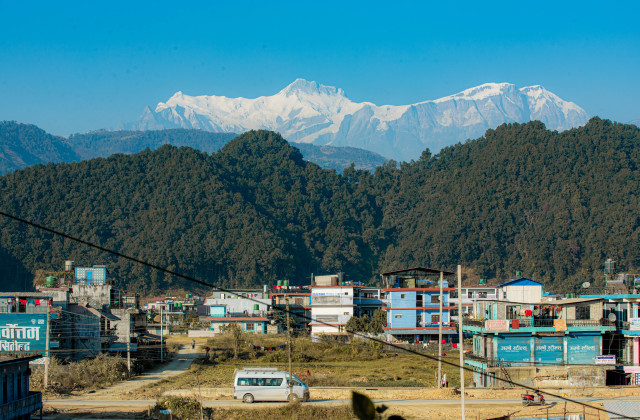
Among the large-scale investments in the area are Rupakot Resort and Begnas Resort, both of which have become prominent names in offering high-quality hospitality services to both domestic and foreign tourists. The area’s natural beauty, combined with cultural diversity, traditional lifestyle, and locally produced goods, has contributed to increasing tourist flow in recent years.
Begnas: A Gem Among the Seven Lakes of Lekhnath
The Begnas area lies in Lekhnath, often referred to as the “Garden of Seven Lakes.” In addition to Begnas Lake, the region is home to other scenic lakes such as Rupa, Dipang, Khaste, Nyuani, and more. These lakes offer a serene and refreshing environment ideal for eco-tourism, photography, and nature walks. Tourists can reach Begnas by traveling 14 km from Pokhara’s Prithvi Chowk or 3.5 km from Tal Chowk, making it accessible yet sufficiently removed from the city’s bustle.
However, despite the tourism potential, infrastructural limitations remain a concern. Poor road conditions and lack of organized transport facilities in the area are major challenges. The Talchowk–Begnas road expansion project has been progressing slowly, which has hindered tourism growth, according to local tourism entrepreneurs. They express concern that if infrastructure is not improved promptly, it may limit the potential of the area as a major tourist destination.

Promoting Eco-Tourism with Sustainable Vision
With Himalaya Forest Resort joining the list of eco-conscious accommodations in the region, the goal is not just commercial success but also sustainable tourism development. “We are committed to respecting the environment while offering authentic experiences to our guests,” Bhandari emphasized. The resort incorporates local architectural styles and materials and aims to employ more locals as it expands in the future.
As Nepal continues to promote offbeat destinations beyond the crowded trails of Annapurna and Everest, locations like Pachabhaiya and Begnas are gaining prominence. Himalaya Forest Resort is a timely addition to this evolving landscape, reflecting a blend of environmental responsibility and hospitality excellence.
The launch of Himalaya Forest Resort in Pachabhaiya brings a fresh opportunity for eco-tourism in Pokhara’s eastern region. With its strategic location, investment in quality service, and focus on nature, it is poised to become a preferred choice for tourists seeking peace, nature, and cultural authenticity in one of Nepal’s most picturesque lake districts.
